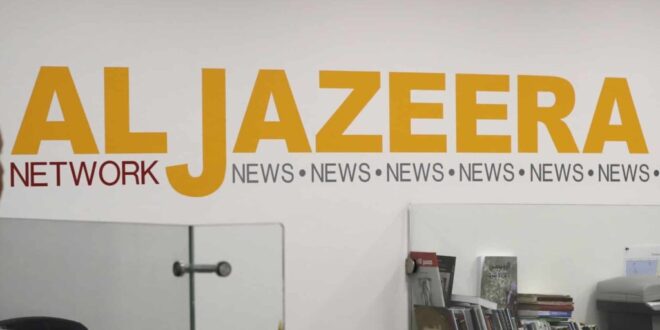The Israel Defense Forces (IDF) published captured documents on October 23 indicating that six Al Jazeera journalists in Gaza are members of either Hamas or Palestinian Islamic Jihad (PIJ). The IDF has released other documents tying Al Jazeera correspondents to terrorist organizations, but the latest documents provide the most detailed evidence of this connection.
The captured documents show that Anas al-Sharif, Hussam Shabat, Ashraf Saraj, and Ismail Abu Omar belong to Hamas, while Alaa Salama and Talal Aruki are part of PIJ. The IDF noted that “documents include personnel tables, lists of terrorist training courses, phone directories, and salary documents for terrorists.” The personnel tables include the ranks and ID numbers for each of the six correspondents. Al Jazeera said the documents were “fabricated evidence” and “a blatant attempt to silence the few remaining journalists in the region.”
The IDF said it found the documents in Gaza but did not provide further details. There are Hamas and PIJ markings on multiple pages, but the IDF did not say how it authenticated the documents or their contents. However, there are some indications online and in social media of the six reporters’ ties to Hamas.
The clearest case is that of Ismail Abu Omar, a former photojournalist for Al-Aqsa TV, on which the U.S. Treasury Department imposed sanctions in 2010 because it is “a television station financed and controlled by Hamas.” The announcement of sanctions also indicated that Al-Aqsa TV “airs programs and music videos designed to recruit children.” The captured documents show that one reporter, Sharif, enlisted in Hamas at age 17, while another, Aruki, enlisted before his 12th birthday.
On October 7, Al Jazeera published Abu Omar’s description of entering a “settlement” in southern Israel: “The first thing journalist Ismail Abu Omar shouted when he entered the settlements was to chant the takbir [‘Allahu Akbar’] and the tahlil [‘There is no god but God’]. His eyes could not bear the scene and filled with tears. He told Al Jazeera Net, ‘For the first time, I am experiencing the scenes that we have always heard about, live and directly.”
That same day, Abu Omar posted video recordings on Telegram, a social media network, suggesting his presence alongside Hamas fighters during their infiltration into Israel. Abu Omar also took photographs of fallen IDF soldiers within Israeli territory and posted them with his personal signature.
Similarly, The New York Times reported that Hussam Shabat, another of the six accused, “wrote posts on social media praising Hamas, and uploaded photos of himself wearing the green-and-white scarf of its student movement.”
On October 24, the IDF released “additional documents indicating close cooperation between Hamas and the network — ranging from prohibiting the channel from criticizing the organization, to concealing incidents of failed rocket launches, and even establishing a secure communication line between Hamas and Al Jazeera.” In a document from 2022, Hamas instructed Al Jazeera on how to cover a failed PIJ rocket launch that killed civilians. Hamas told the network not to use charged words like “massacre,” since Israeli forces did not cause the deaths in question. According to the document, the network agreed to Hamas’s request.
In August, the IDF released part of a captured personnel roster from 2021 showing that another Al Jazeera correspondent, Ismail al-Ghoul, was a member of Hamas. Before joining Al Jazeera, al-Ghoul worked for the pro-Hamas outlets Felesteen and al-Resalah and praised Hamas on Facebook.
In May, the Israeli cabinet voted to shutter Al Jazeera’s offices inside the country. This move came after the Knesset’s authorization of the government to close foreign media networks deemed to threaten national security.
U.S. authorities should fully investigate Al Jazeera to assess whether and to what extent it has cooperated with Hamas and determine if the network should be subject to terrorism sanctions. Since the network is an instrument of the Qatari government, the investigation should also determine if action against officials in Doha is warranted.
 Eurasia Press & News
Eurasia Press & News



